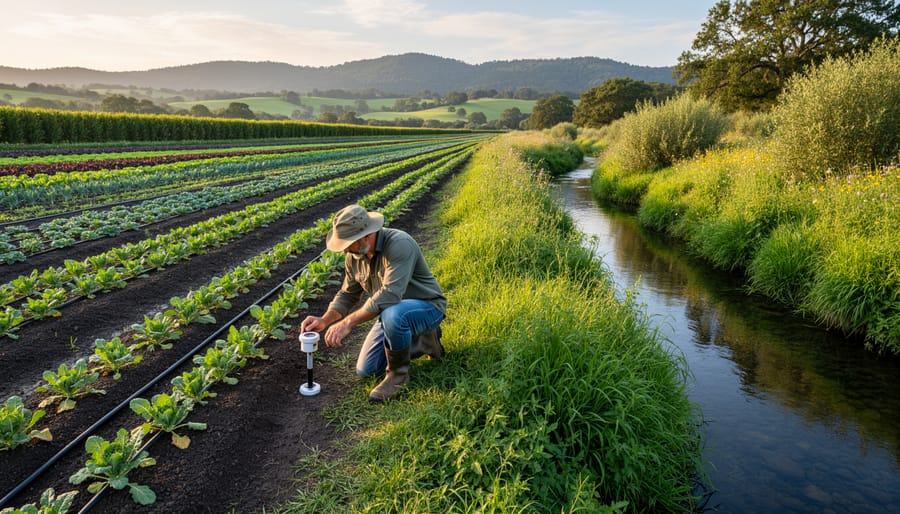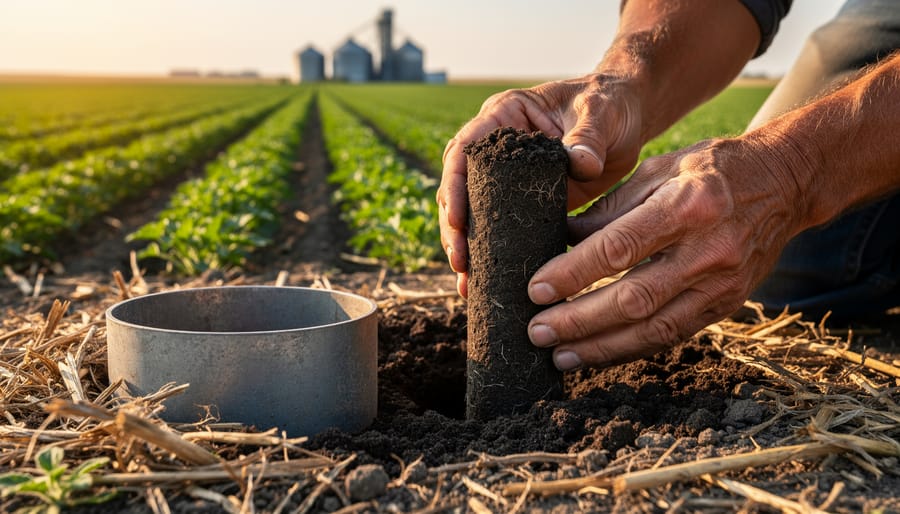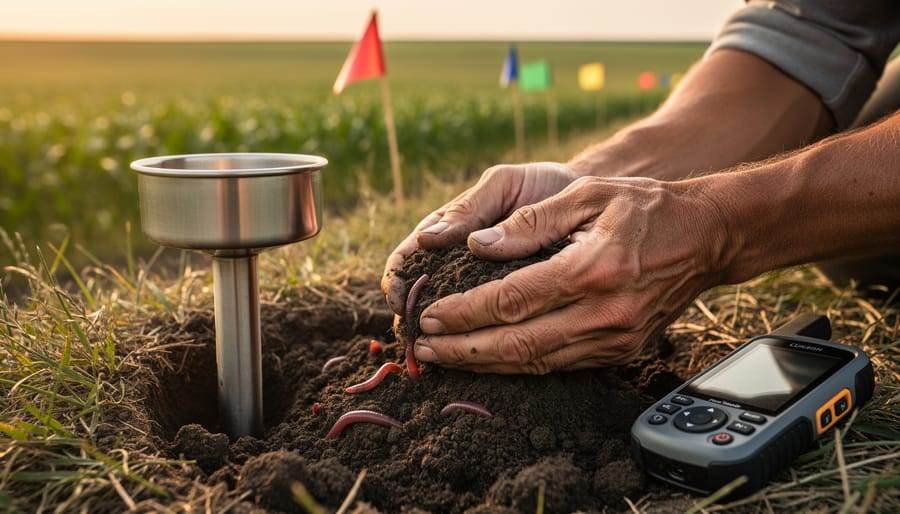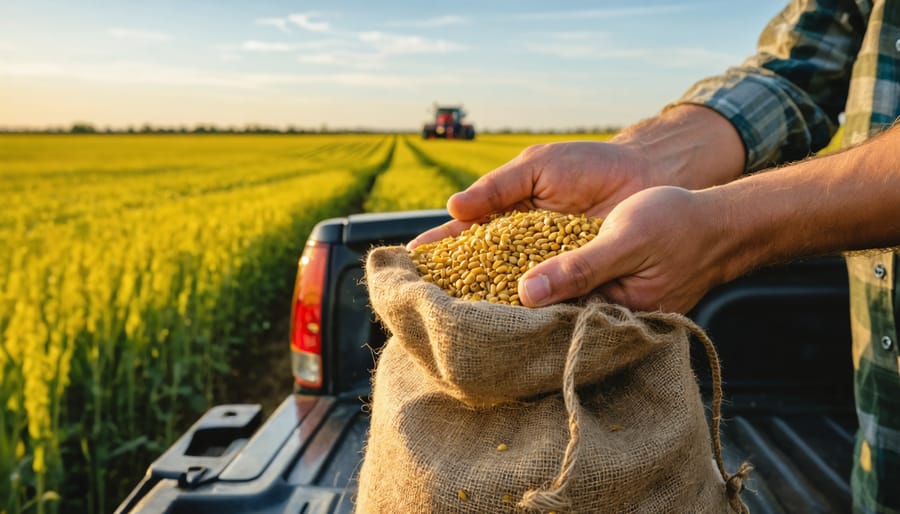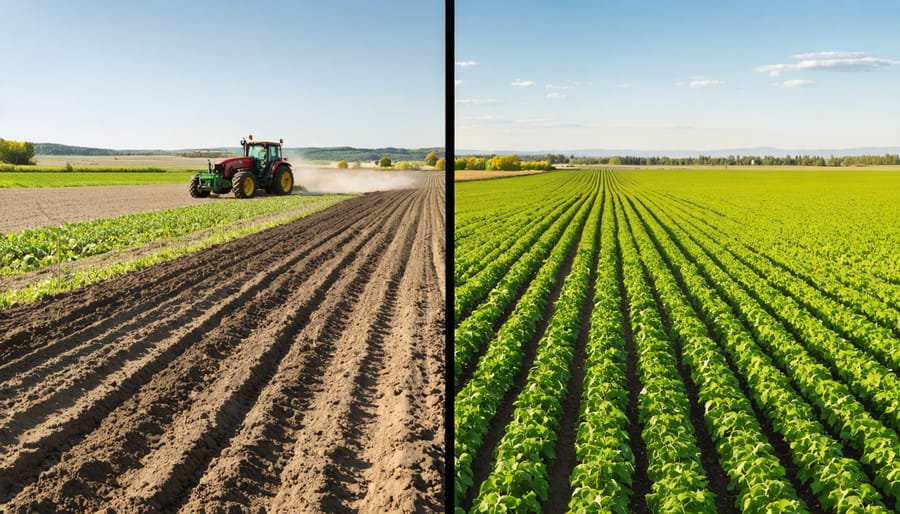Transform your farming operation into a certified organic enterprise by mastering the essential qualifications required across Canada. Understanding the organic certification process demands thorough preparation, documented expertise, and unwavering commitment to sustainable practices.
Alberta farmers seeking organic certification must complete specific training requirements, including comprehensive soil management courses, pest control methodologies, and organic production techniques through recognized agricultural institutions. These qualifications validate your expertise and ensure compliance with Canadian Organic Standards (COS).
The journey to certification involves three critical components: formal education through accredited agricultural programs, hands-on experience managing organic production systems, and detailed documentation of farming practices. Successful certification requires maintaining meticulous records of crop rotations, input applications, and pest management strategies for at least 36 months before certification.
Industry leaders across Alberta demonstrate that proper qualifications not only secure certification but also enhance operational efficiency and market access. By investing in recognized organic farming education and maintaining detailed compliance records, producers position themselves for long-term success in Canada’s growing organic market.
Essential Qualifications for Organic Certification in Alberta
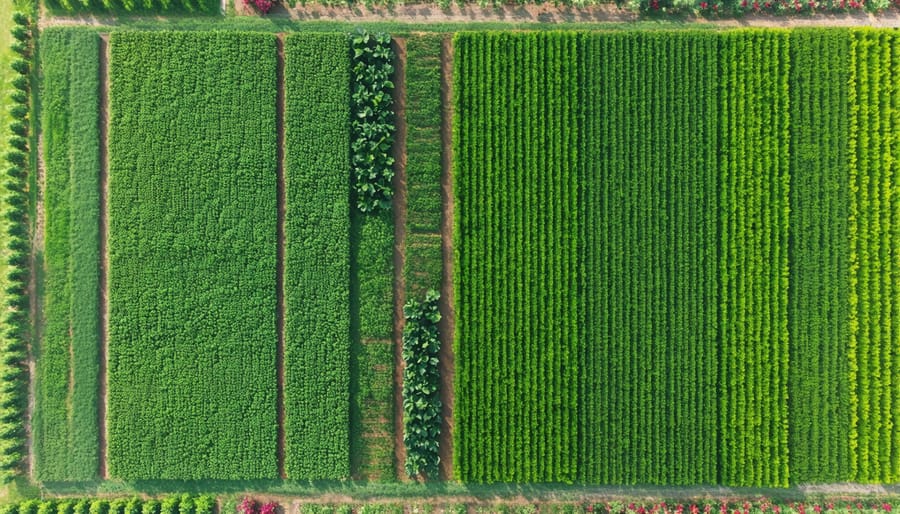
Land Requirements and Transition Periods
Before transitioning to organic farming, your land must be free from prohibited substances for at least 36 months. This means documenting your field history and management practices from the last three years. In Alberta, farmers typically begin this process by gathering records of previous crop rotations, input applications, and neighbouring land use.
You’ll need to maintain detailed records showing that no synthetic fertilizers, pesticides, or GMO crops were used during the transition period. If you’re starting with virgin land or land that’s been unused for several years, you may qualify for a reduced transition period, but you’ll still need documentation proving its status.
Working with local organic inspectors, you’ll establish buffer zones between your organic fields and conventional farming operations. These zones, typically 8 metres wide, help prevent drift contamination from neighbouring properties. Consider planting hedgerows or maintaining natural barriers to enhance this protection.
During the transition period, you can market your products as “transitional organic,” though they won’t qualify for full organic certification. Many Alberta farmers use this time to establish organic markets and fine-tune their sustainable farming practices.
Remember to maintain thorough records throughout the transition period, including:
– Field maps and histories
– Input records
– Equipment cleaning logs
– Buffer zone maintenance
– Seed purchase receipts
– Crop rotation plans
Local success stories show that while the transition period requires patience and careful planning, it provides valuable time to adapt farming practices and build soil health naturally.
Required Documentation and Record-Keeping
Maintaining proper records is crucial for organic certification compliance in Alberta. The documentation requirements include detailed records of all farming activities, inputs, and outputs.
Essential records to maintain include:
– Field histories and maps showing crop rotations
– Seed purchase receipts and organic certificates
– Input records (fertilizers, pest control materials)
– Harvest and sales records
– Equipment cleaning logs
– Buffer zone management documentation
– Storage facility records
– Pest management activities
– Soil management practices
Modern record-keeping can be simplified through digital tools and apps designed specifically for organic farmers. Many Alberta producers now use farm management software that automatically tracks and organizes required documentation. These systems help ensure compliance while reducing paperwork time.
Implement a systematic filing method for:
– Organic certification applications and renewals
– Inspection reports
– Laboratory test results
– Supplier certificates
– Transaction certificates
– Annual production plans
Keep all records for a minimum of five years, as required by certification bodies. Regular updates and reviews of your documentation system help maintain certification status and demonstrate continuous compliance. Consider attending local workshops on organic record-keeping offered through Alberta’s organic farming associations to stay current with best practices.
Remember to maintain copies both digitally and in hard format for backup purposes. This comprehensive approach to record-keeping not only satisfies certification requirements but also provides valuable data for improving farm operations.
Training and Education Requirements
Certification Body-Approved Courses
In Alberta, several accredited organizations offer comprehensive training programs specifically designed for organic farming certification. The Organic Alberta Academy stands out as a primary education provider, offering both online and in-person courses throughout the year. Their flagship “Organic Certification Preparation” course runs for 12 weeks and covers essential aspects of organic production, record-keeping, and certification requirements.
The Canadian Organic Growers (COG) also delivers recognized courses in partnership with local agricultural colleges. Their “Organic Master Class” series includes hands-on training sessions at certified organic farms across Alberta, providing practical experience alongside theoretical knowledge.
ATCO Blue Flame Kitchen’s Agricultural Learning Centre offers specialized workshops focusing on organic greenhouse management and season extension techniques. These programs are particularly valuable for farmers transitioning from conventional to organic methods.
All certification body-approved courses in Alberta align with the Canadian Organic Standards and are regularly updated to reflect changes in regulations. Most programs include:
– Soil fertility management
– Organic pest control methods
– Record-keeping systems
– Marketing organic products
– Certification process navigation
To maintain quality and consistency, these courses are reviewed annually by certification bodies such as Pro-Cert Organic Systems and Ecocert Canada. Completion certificates from these approved training programs are recognized by all major organic certifiers operating in Alberta, streamlining the certification process for farmers.
Compliance Monitoring and Inspection Process

Annual Inspections and Spot Checks
Once certified, organic farms undergo regular annual inspections and unannounced spot checks to maintain their certification status. These inspections typically occur during the growing season when farming activities are in full swing, allowing inspectors to evaluate actual practices in action.
During annual inspections, certified organic farmers must demonstrate continued compliance with organic standards through detailed record-keeping, including seed purchases, crop rotation plans, and pest management strategies. Inspectors thoroughly review these documents and conduct physical farm tours to verify that practices align with organic requirements.
Spot checks can occur at any time throughout the year, often without prior notice. These surprise inspections help ensure ongoing compliance and maintain the integrity of organic certification. In Alberta, certified operations can expect at least one unannounced inspection during their three-year certification period.
Local organic farmer Sarah Thompson from Lacombe County shares, “While inspections might seem daunting at first, they’ve actually helped us improve our operation. The feedback from inspectors has been invaluable in fine-tuning our practices and maintaining our organic status.”
Keep all relevant documentation organized and readily accessible to make these inspections smoother and more efficient.

Success Stories: Alberta’s Certified Organic Farmers
Meet Sarah and John Thompson, third-generation farmers from Lacombe County who transformed their conventional grain operation into a thriving 800-hectare organic farm. “The certification process seemed daunting at first,” Sarah shares, “but working with our certification body step-by-step made it manageable.” After three years of transition, their farm now produces certified organic wheat, oats, and pulses, with revenues increasing by 40% since certification.
In the Peace Country region, Maria Rodriguez runs a 120-hectare organic vegetable operation. Starting small with just 10 hectares in 2015, she methodically expanded while maintaining strict documentation practices. “Keeping detailed records was crucial,” Maria explains. “I developed a system early on that made annual inspections straightforward and stress-free.”
Near Lethbridge, the Weber family’s dairy operation stands as a testament to successful organic transition. Despite initial challenges with organic feed sourcing, they built strong relationships with local organic grain producers. “Networking with other organic farmers was invaluable,” says David Weber. “The organic farming community in Alberta is incredibly supportive.”
These success stories share common elements: thorough preparation, commitment to documentation, and active participation in the organic farming community. All three operations maintain certification through careful adherence to standards while innovating within organic guidelines to improve productivity and soil health.
Embarking on your organic farming certification journey requires dedication, but the rewards for both your operation and the environment make it worthwhile. As we’ve explored, the path to certification involves meeting specific standards, maintaining detailed records, and completing necessary training programs. Remember that successful certification is achievable with proper planning and commitment to organic principles.
Take advantage of the extensive support for organic farmers available throughout Alberta and across Canada. Start by connecting with local organic farming associations, attending workshops, and reaching out to certified organic farmers in your community who can share their experiences.
Your next steps should include:
– Reviewing certification requirements specific to your farming operation
– Developing a detailed transition plan
– Gathering necessary documentation
– Scheduling an initial consultation with a certification body
– Creating a timeline for implementation
Remember, organic certification is not just about meeting standards; it’s about joining a growing community of sustainable agriculture practitioners who are shaping the future of Canadian farming. Take that first step today, and you’ll be contributing to a more sustainable agricultural future for Alberta and beyond.


